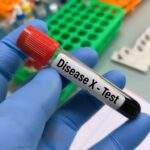Diarrhea is a common digestive problem characterized by the frequent passage of loose, watery stools. It can affect individuals of all ages, including infants, children, and adults. Here are some key points about the causes, types, and symptoms of diarrhea:
Causes of Diarrhea:
- Infections: Diarrhea is often caused by bacterial, viral, or parasitic infections. Common pathogens include Escherichia coli (E. coli), Salmonella, norovirus, and rotavirus.
- Food Poisoning: Consuming contaminated food or water can lead to food poisoning, resulting in diarrhea and other gastrointestinal symptoms.
- Gastrointestinal Disorders: Chronic conditions like irritable bowel syndrome (IBS), inflammatory bowel disease (IBD), and celiac disease can cause recurring episodes of diarrhea.
- Medications: Some medications, such as antibiotics, can disrupt the balance of gut bacteria and lead to diarrhea as a side effect.
- Dietary Factors: Excessive consumption of certain foods or drinks, like spicy foods, caffeine, or alcohol, can trigger diarrhea in sensitive individuals.
- Stress and Anxiety: Emotional stress and anxiety can affect gut function and lead to diarrhea in some people.
- Food Allergies and Intolerances: Conditions like lactose intolerance or gluten sensitivity can result in diarrhea when specific foods are consumed.
Types of Diarrhea:
- Acute Diarrhea: This type of diarrhea comes on suddenly and typically lasts for a short period, usually less than two weeks. It is often caused by infections or dietary factors.
- Chronic Diarrhea: Chronic diarrhea lasts for more than two weeks and may be related to underlying medical conditions, such as IBS, IBD, or chronic infections.
- Traveler’s Diarrhea: Traveler’s diarrhea occurs when individuals travel to regions with poor sanitation and consume contaminated food or water. It’s often caused by bacterial infections.
Common Symptoms of Diarrhea:
– Frequent, loose, watery stools
– Abdominal cramps and pain
– Bloating and gas
– Nausea and vomiting (in some cases)
– Dehydration, which can lead to symptoms like dry mouth, excessive thirst, dark urine, and fatigue
It’s important to note that diarrhea can vary in severity from mild to severe, and complications can occur if it leads to significant dehydration, especially in infants, young children, and the elderly.
Diarrhea can affect individuals of all ages, and the treatment approach may vary depending on the cause and severity. In many cases, diarrhea resolves on its own within a few days. However, if it persists or is associated with severe symptoms, it’s essential to seek medical attention to identify and address the underlying cause and prevent dehydration. Treatment may include rehydration, dietary changes, and, in some cases, medication.
Book an Appointment for Diarrhea
VCare Urgent Care near South Brunswick, NJ Book an Appointment / Call (888) 460 1151


